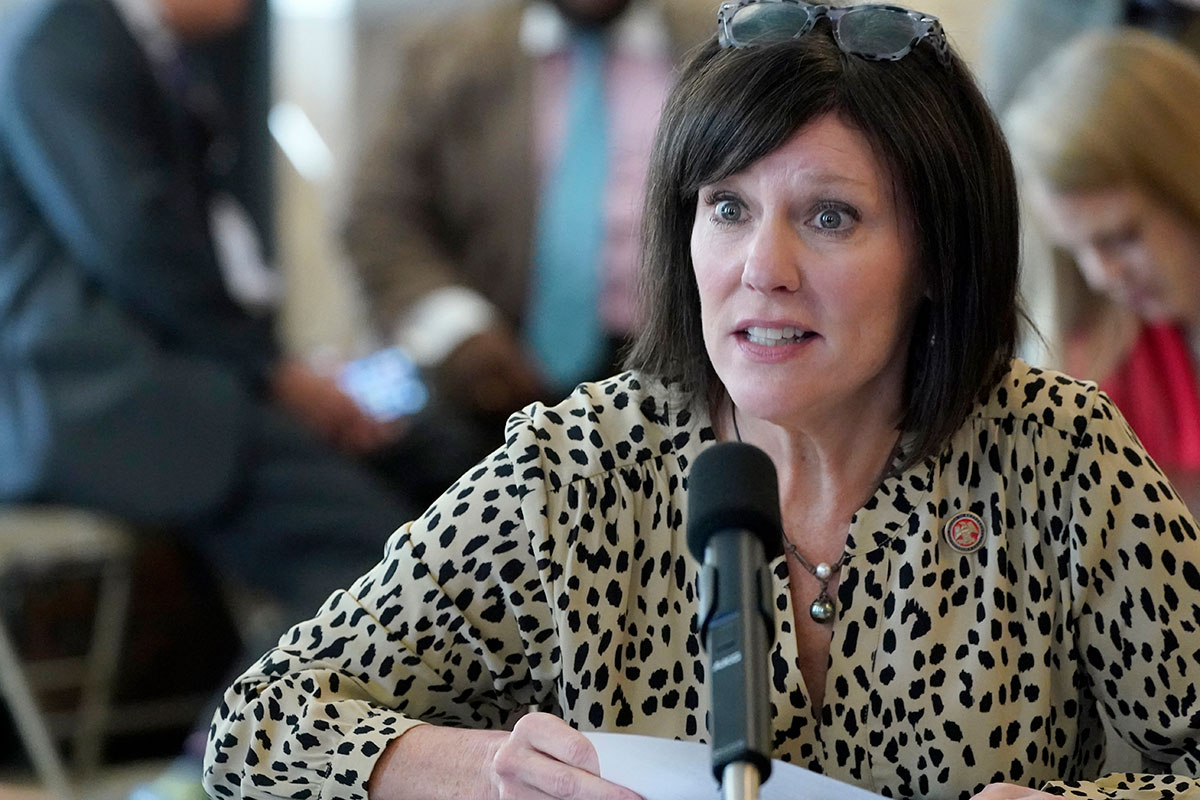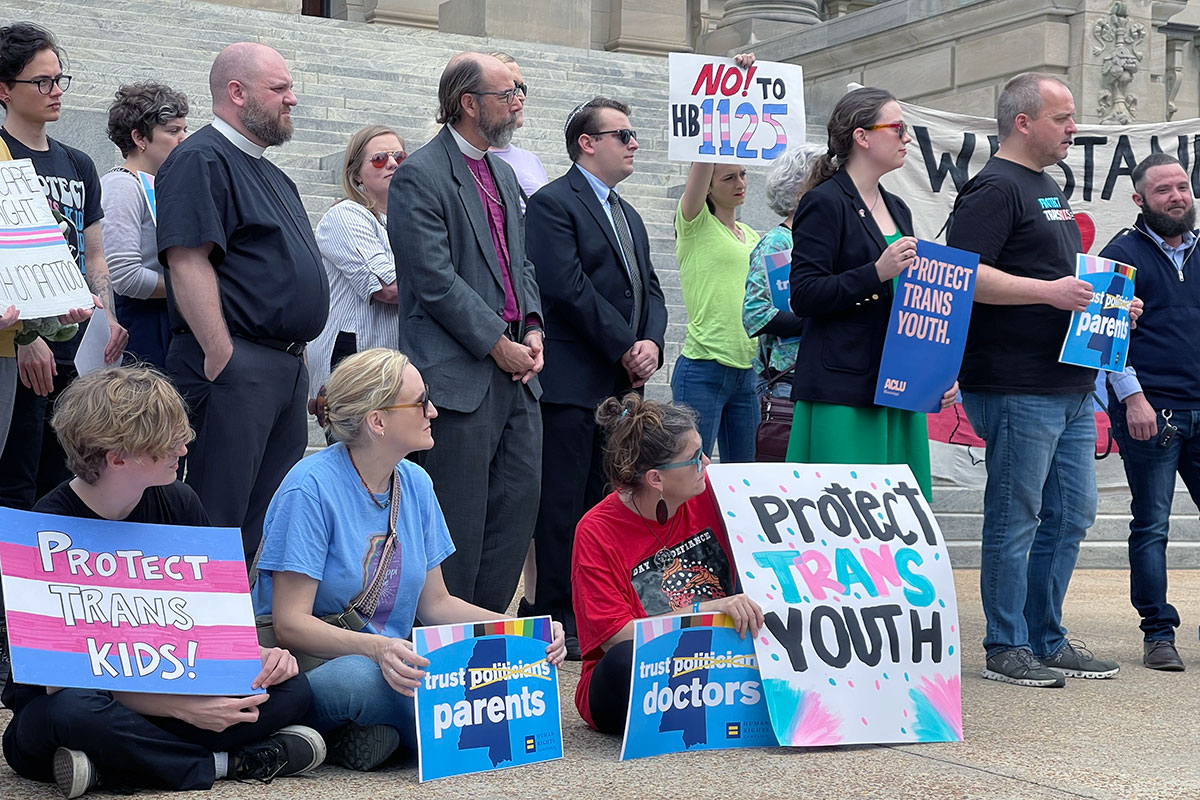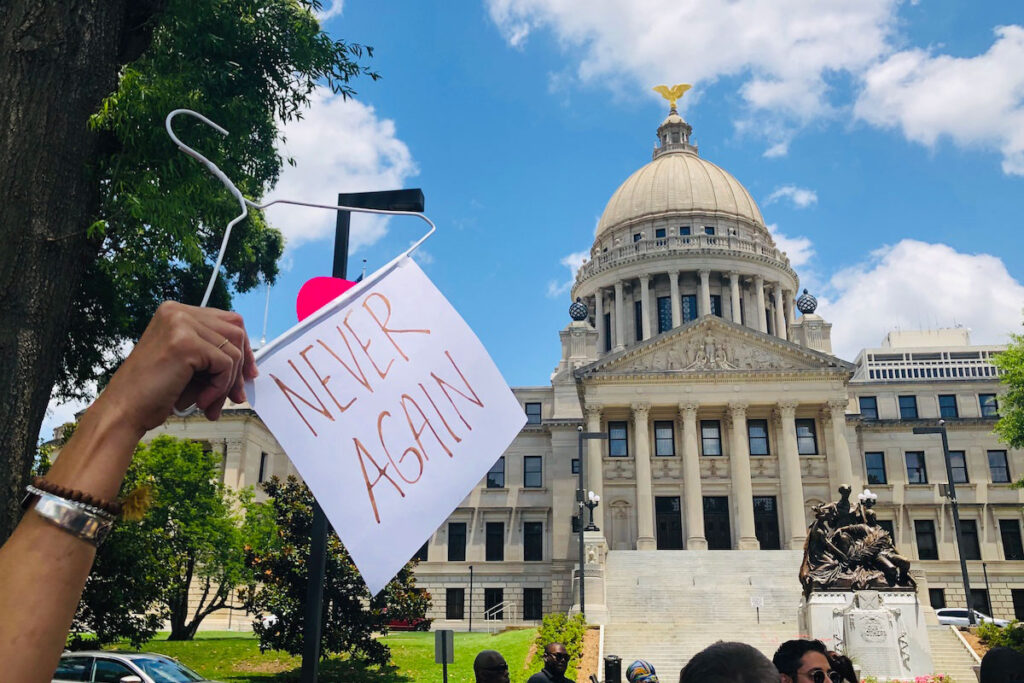Efforts to expand Capitol Police’s jurisdiction over the City of Jackson and to reintroduce a more limited citizen-led ballot initiative process remain alive after the Mississippi Legislature’s latest deadline to advance bills. Tuesday was the deadline for committees in the House and Senate to pass out general and constitutional amendment bills that originated from the opposite chamber.
The following is a roundup of some of the legislation that remains.
Restoring Ballot Initiatives, But No Abortion Changes
Mississippi voters could soon regain a more limited, citizen-led ballot initiative process under Senate Joint Resolution 533, but with a catch: They could not use it to “propose any new law or amend or repeal any existing law relating to abortion.” The House Constitution Committee added the prohibition on abortion-related initiatives as it advanced the bill on Tuesday.
Though Mississippi is the state that led the successful effort to overturn Roe v. Wade at the U.S. Supreme Court, polls show that a majority of Mississippi voters disagree with the decision and do not support broad abortion bans like the one in effect now. After anti-abortion activists put a wide-ranging “Personhood” abortion ban on the ballot in 2011, which also could have outlawed some forms of contraception and in-vitro fertilization, voters rejected it by a 58%-42% vote.
After voters approved a medical-marijuana program by ballot initiative in 2020, the Mississippi Supreme Court struck down the ballot initiative process on a technicality in 2021, which killed efforts to use it to expand Medicaid and implement an early voting system. The old system allowed voters to use the ballot initiative system to make changes to the state constitution; the new system would only allow voters to make changes to general law. While petitioners previously had to gather a little over 100,000 verified signatures to put an issue on the ballot, they would need to gather about 240,000 under the new system.
The bill will head to the House floor for a full vote.
Postpartum Medicaid Extension
New mothers who cannot afford private health care could receive postpartum Medicaid coverage for a year after giving birth instead of the current two-month limit under Senate Bill 2212, which the Mississippi House Medicaid Committee advanced Tuesday. But Mississippi House Speaker Philip Gunn, who blocked similar bills in 2021 and 2022, is still refusing to say whether he will allow a vote among all members on the House floor.

Mississippi Rep. Missy McGee, R-Hattiesburg, presented Senate Bill 2212 to the Mississippi House Medicaid Committee on Tuesday morning. She said the policy is even more urgent since the U.S. Supreme Court’s ruling last year in Dobbs v. Jackson Women’s Health Organization allowed the state to ban nearly all abortions.
“This bill demonstrates that we as policymakers also recognize that our commitment to life cannot end once the baby takes his or her first breath,” she said.
Expanding Capitol Police Jurisdiction
Lawmakers originally would have established a new court system in Hinds County with unelected judges and prosecutors in an expanded capitol district under House Bill 1020. The legislation has since morphed into an effort to instead expand the jurisdiction of the State-run Capitol Police over the 82%-Black capital city. In a CNN interview, Jackson Mayor Chokwe A. Lumumba called it “colonization,” “apartheid” and “the worst of what Mississippi can be,”, and he told the Mississippi Free Press that he would not sign a memorandum of understanding that it could happen. The lawmakers behind the bill say their goal is to help the capital city curb crime.

The Mississippi Senate Judiciary A Committee made the changes on Feb. 23 as they moved the legislation forward. H.B. 1020 would require the the City of Jackson sign an agreement with the Department of Public Safety, allowing the State to take more control of the majority-Black capital city and giving the Capitol Police concurrent jurisdiction with the Jackson Police Department and Hinds County Sheriff.
A separate bill to expand Capitol Police jurisdiction over the City of Jackson and also expand the capitol district’s boundaries, Senate Bill 2343, also remains alive after House lawmakers voted to advance it on Tuesday.
Jackson Water Legislation
A new regional authority would oversee Jackson’s water system under Senate Bill 2889, which the House Public Utilities Committee revised on Tuesday. The original bill would have given ownership of the system to the new regional authority, which would be appointed by state and local officials. The new version would instead give the authority a “leasehold” on the Jackson water system’s assets. House Rep. Shanda Yates, I-Jackson, told Mississippi Today that the goal is to “have something in place, ready to go” when the term of the federal receiver who currently oversees the system ends.
The amendment says the regional utility authority “shall possess a leasehold in all water, wastewater and storm water system assets beginning on the date of termination of the receiver by the U.S. District Court for the Southern District of Mississippi” and that “the City of Jackson shall maintain ownership of all assets.”

“All funds obtained by the utility authority in excess of expenses to operate and maintain the water, wastewater and storm water systems, including, but not limited to, capital expenditures, debt service and reserve funds as needed as determined by the utility authority, shall return to the City of Jackson,” the amendment says.
A separate bill, House Bill 1168, originally would have limited the City of Jackson’s spending of its 1% special tax to water-system issues, not other infrastructure projects. The Senate Finance Committee removed that provision on Tuesday, but did retain language that would penalize the City by withholding funds if it does not file yearly audits.
Mississippi House lawmakers amended and advanced House Bill 698, which would limit the billing of municipal water and sewer services to be based on use, not property value. The Senate Energy committee passed the bill on Feb. 27 and is headed to the Senate floor for debate.
Legalizing Fentanyl Test Strips, Outlawing Tianeptine
Fentanyl drug test strips would no longer be included under the definition of illegal drug “paraphernalia” under H.B. 722, which the Senate Drug Policy committee advanced on Feb 24. Two days before that, the Senate Judiciary B Committee moved forward House Bill 4, which would make Tianeptine a Schedule I drug in the state. Both bills must still earn approval on the Senate floor and the governor’s signature to become law.
Criminal Justice Bills
The number of assistant attorneys and criminal investigators could increase with House Bill 834. Another criminal justice bill, House Bill 1215, would suspend child-support payment requirements for incarcerated persons. Senate committees advanced both bills in late February and sent them to the Senate floor for debate. A House committee advanced Senate Bill 2082, which would also relieve incarcerated people of child support requirements, to the House floor on Tuesday.
Ban On Trans Health Care For Minors Now Law
On Tuesday, Gov. Tate Reeves signed House Bill 1125, which bans “gender transition procedures” for minors in the state. The law, known as the “Regulate Experimental Adolescent Procedures (REAP) Act,” prohibits standard care such as hormone therapy and puberty-blocking drugs by barring public funds from going to “any entity, organization or individual that provides gender transition procedures to a person under eighteen years of age.”

“We will of course abide by the law as it stands in Mississippi and cease to provide any services to those under the age of 18,” Stacie Pace, a health-care provider at Spectrum: The Other Clinic, said in a statement with the Campaign For Southern Equality afterward on Tuesday. “For those who have passed this law, we truly hope that they do not understand what they have done. Because to understand the implications of this bill’s passage is to be complicit in the increased suicidality and discrimination of this vulnerable population. Our hearts are heavy with the burden of knowing what this can lead to.”










